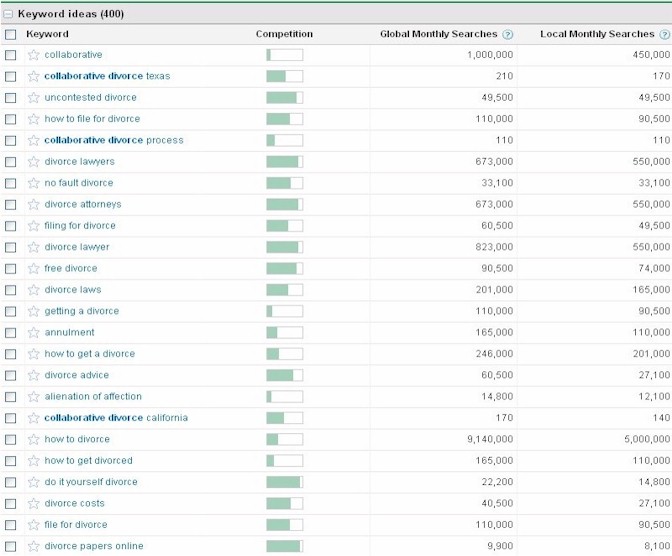|
This is one in a series of marketing articles that will explain
e-marketing in layman’s terms. This
information is provided to help you modify your online presence to get
your practice noticed.
Marketing Tip: How to Write the Article that Will Go “Viral”
Writing an article is easily the least expensive way to market your
practice and, if done correctly, one of the most effective. You can write
for trade publications, blogs, e-newsletters, online newspapers and
magazines, websites, and many other vehicles. Every form of publication
is looking for content of interest to their readers and if they can get it
for free – all the better. This defines the opportunity, but how do you
make the best of it and write an article that will truly go “viral”.
First let’s start by defining what we mean by the term “viral”. We’ve all
see the YouTube videos of dancing babies and piano playing cats that touch
a funny bone, take off and find an enthusiastic audience of millions
around the globe. While it is doubtful that any article on mediation
would reach an audience of that size, what you really want it to do is to
be passed along to reach several thousand people of which several hundred
might be valid prospects for you.
Topic
Obviously you are going to write about topics that you understand, but you
also need to write about topics that people are researching. If they’re
not searching for your topic then there is no chance that your article is
going to pop up in front of them. How can you know what people are
researching ? Time to go back to our old friend the Google Keyword
Estimator tool ! (http://tinyurl.com/3uz626a
) Type
in the keyword or phrase that you think you are going to write about such
as “collaborative divorce.”
Google will return with a chart that shows you how often your
keyword/phrase was searched in the last month along with 50-100
alternates. By looking at these you’ll see what topics really interest
people. Maybe they don’t know that “collaborative divorce” exists but
they do search for “mediated divorce” or “friendly divorce.” Given that
information you can tailor your topic to the current market interests.
|
 |
Notes:
A. The column
titled "Competition" indicates how many people are using this specific
keyword or phrase for their Google AdWords ad.
B. "Global" monthly
searches indicates how many searches are made worldwide in the past
month for these keywords/phrases.
C. "Local" are the
searches done in the area you define as your local area (in this case
we've used USA) |
Title
The next trick to writing an article that gets noticed is to come up with
a title that gets noticed. It needs to include key words of interest to
your audience so that the search engines will pick it up when someone
Googles “successful divorce mediation tips” or whatever topic you are
writing about. Go back to the Google keyword estimator again to make sure
you are using the right words.
A hint of humor in the title isn’t a bad thing either…athough you can’t
afford to be too cute or your audience won’t take you seriously. For
example, I had to title an article the other day about a new micro brewery
in Marietta (
www.redharebrewing.com
) for a newsletter. What we came up with was “Cobb Entrepreneurs Brew Up
New Business”. Notice we managed to include the cute factor while using
one of the key words – “brew” and adding a location indicator – “Cobb.” An
article with a cute title on a topic of current interest is more likely to
be read than something boring like “Divorce Trends in Georgia.”
Formatting
Most of us in this business like to write, but unfortunately most of us
learned to write for a world that was reading printed material…not
electronic material. There is a big difference between the two. When you
write material designed for hard copy you can write longer, denser
paragraphs than you can when writing for the web. When you write for the
web you need to write with these points in mind:
|
► |
When
people first see a web page they read in an “F” pattern so the top and
left of your page are the most important and that’s where your
eye-catching material needs to go. |
|
|
|
|
► |
Once
you’ve caught people’s eye and they are ready to read your article in
detail then they read in a “Z” pattern. |
|
|
|
|
► |
People
will zoom to charts, bulleted text, images and other material that
breaks up the text. If it is important information make sure you call
it out in this manner. |
|
|
|
|
► |
We live
in a visual world – use images to pull the reader through the text. |
Try to limit the size of your paragraphs to 2-4 sentences. You may find
that means you are breaking up your text more than you would for a printed
piece, but think about the reader….reading on a computer screen isn’t
always easy. By breaking up the text you make it easier to read, and if
it is easier to read, then there is a better chance that people will
forward your article to friends and family, which is the first step in
going “viral”.
Multiple Placements
Make sure that when you write an article for XYZ publication that you
retain the rights to publish the same article elsewhere…even if that means
you have to attribute it to the original publisher. This allows you to
leverage your work product. Now you can use the same material as your
weekly blog post, a social media post, and possibly submit it to another
publication. The more times your name and the title of this article
appear the more important you and your topic become to Google. The more
important you become to Google the higher you will rank in a search. Many
of your peers dominate the first 3-5 pages of a Google search just because
of the number of times they have written material and the number of times
that same material has been published.
Deliver Real Value
While opinion pieces are nice, they belong on the Op-Ed page of a
newspaper and the chances are they’re not going to get forwarded a lot.
Your article needs to include content of value, which might be:
|
► |
List of
new books or articles on the topic in question |
|
|
|
|
► |
Links
to websites with additional information, forms, etc. |
|
|
|
|
► |
Specific information such as case numbers, laws, etc. |
You need to remember that our purpose here is to write an article that
will get forwarded many times. If you include specific information of
value you have a much greater chance that the article is going to be
forwarded many times. On the other hand, if it is just your opinion then
your forwarding is limited.
Find the Right Venue
A publication that allows you to write repeatedly is more valuable to you
that one that just lets you write a one-off piece. Do you mediate
business disputes ? Then go find a business publication that might like
to have a free columnist. Maybe you do personal injury cases – if so, go
talk to one of the many medical-oriented e-newsletters.
All of these publications are constantly looking for good content, and if
they can get it for free they’re even happier. One big secret out there
today is that newspapers and magazines now rate themselves with new
metrics. It is no longer a function of how many subscribers they
have…rather it is a question of how many web impressions (viewings) their
material is getting. Armed with this information they can sell ad space.
Thus if you write articles or a column for them that becomes popular
they’ll be anxious to keep you on board.
Give Yourself Credit
You’ve gone out and written a great article that because of its title
and content has been forwarded all over the Southeast…but what has it done
for you ? If you haven’t included enough information for people to
easily contact you, then your work is for naught. Make sure that the
last paragraph of the article includes your contact information or at a
minimum a link to the contact page on your website. Without this you’ve
just done a lot of work for nothing !
Next month:
Building Your Referral Engine
 |
|
Michele Gibson is a Georgia-registered neutral and a certified
emerging media consultant. She is the president of Digital Smart
Tool, LLC – an e-marketing firm offering website design, SEO,
electronic newsletters, social media coaching, and marketing training
seminars.
Phone: 404-592-3367 E-mail:
mgibson@digitalsmarttools.com |
|


